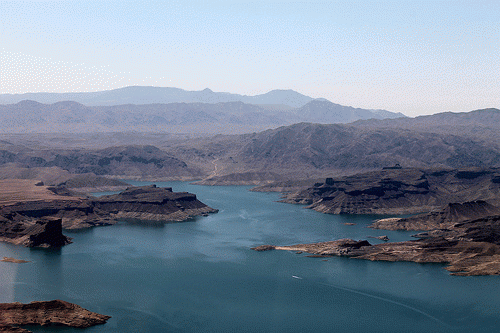A civil lawsuit by the Chemehuevi Indian Tribe, which is seeking monetary damages against the United States for water the tribe was going to use for irrigation purposes, is ongoing in eastern San Bernadino County, Calif., and is to be decided by a federal court in the nation's capital.
Lawyers for the tribe claim the United States has failed to hold, protect, manage and maintain the tribe's interests under federal law. The amount of money the tribe is seeking is unknown, but an attorney representing the Chemehuevi says the ultimate payment "should be in the millions."
Mario Gonzalez, a Rapid City, S.D., attorney who is representing the Chemehuevi people told this writer in a telephone interview that according to an Arizona vs. California water rights case in which water rights for the Colorado River were quantified for this tribe, the 11,300 acre-feet-per-year were not given to the Chemeheuvi people according to legal, proper allotment. Only about 2,000 acre-feet-per-year has been used for irrigation purposes by the Chemehuevi while the rest of the water was used by the Metropolitan Water District of California.
"The Metropolitan Water District of California has been allotted about 9,300 acre-feet-per-year of water from the Chemehuevi's water out of the Colorado River since 1964, when the quantification was set. Our complaint is asking for an accounting from the Department of the Interior to the trustee of the tribe for proper, legal figures," Gonzalez said."A lot of these cases I've handled over the years are very complex. Monetary loss has to be calculated on how much acre-feet-of-water is worth per year. . . . We'll most likely bring into this proceeding an expert witness, or expert witnesses, for coming up with methodologies of damages that the tribe is owed from all this water lost to the Metropolitan Water District of California," Gonzalez said.
It's a shame when treaty, land and water rights are violated. For all too long, the U.S. government has taken advantage of American Indians. When asked if the Chemehuevi are a poor tribe, Gonzalez admitted, "I don't know if they're poor, but they're certainly not a rich tribe. I can tell you this, though: They're certainly a progressive tribe. They have a casino and a marina on a lake on their reservation."
Currently, there is a motion to dismiss this case with the U.S. Court of Federal Claims in Washington, D.C., but if this motion to dismiss is nixed and the case is presented, Gonzalez has no doubt that the Chemehuevi Tribe will prevail, the attorney said.
"You never know. Once we get the motion to dismiss this case cast out, we can litigate," Gonzalez said. "The U.S. Secretary of the Interior is the tribe's trustee and the Chemehuevi allege that the trustee should not have been giving water rights away. Instead, some type of lease should have been arranged. If they get lease statements on quantified water rights like some other tribes do, they can make money on water they have been allotted but do not use," Gonzalez said.
Attorney Gonzalez is fighting for the Chemehuevi Tribe with a team of lawyers and he asserted that they will do everything in their power to keep Case Number 16-492-L alive before Chief Judge Patricia Campbell-Smith.
(Note: You can view every article as one long page if you sign up as an Advocate Member, or higher).






